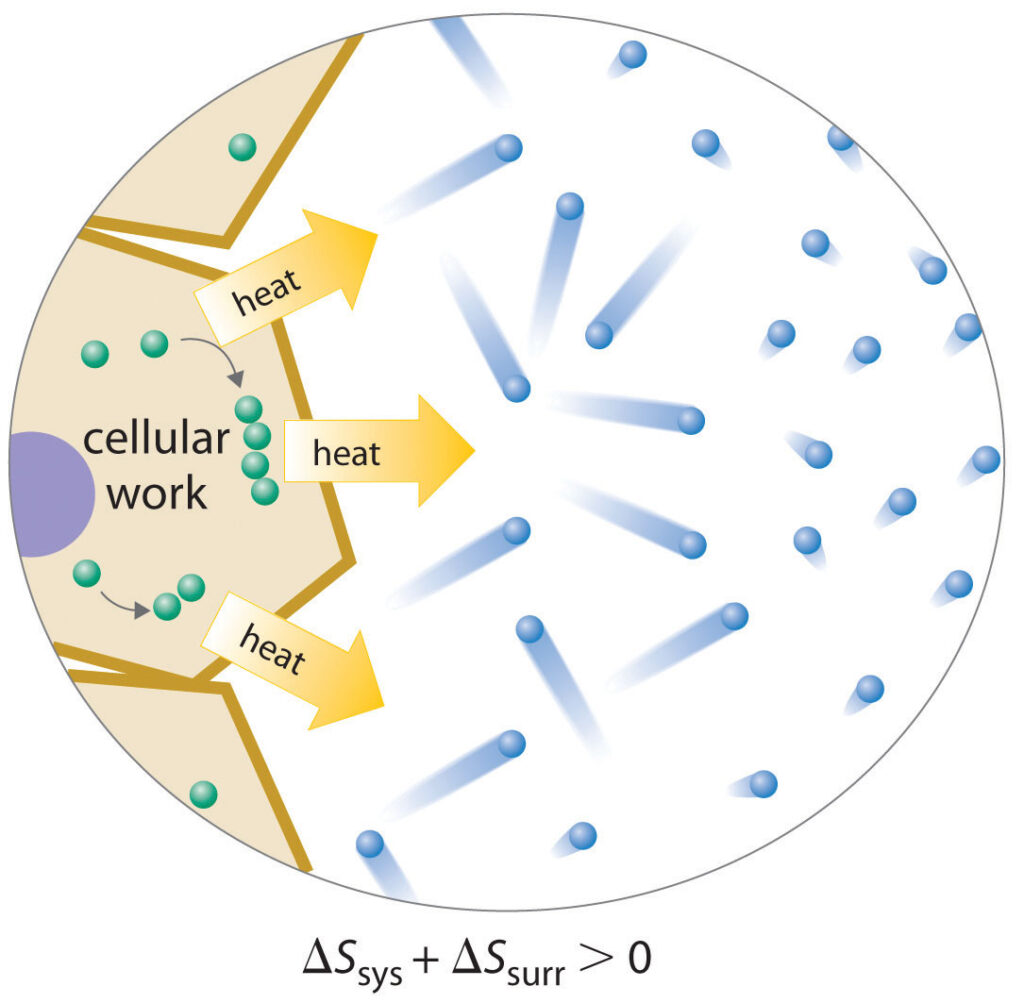
Capitalism is a hot topic at the moment, its successes and failures, its potential and limitations, and its impacts on culture and the environment. Any examination of capitalism requires its definition, however. While it has many facets, for the purposes of this discussion, I am going to use a simple meaning – excess accumulation, ie: profit.
And just to make sure our frame of reference is well-established, let’s also define excess accumulation, ie: profit: acquiring more energy or resources than are necessary for the moment. Necessary for the moment, in this case, means that which is required to sustain current activity, be it life, business, or the workings of a system.
All ongoing activities expend energy, a fundamental truth of the Laws of Thermodynamics. Systems that expend energy must acquire more energy; if they do, we call this dynamic “sustainable.” It’s the consequence of entropy, the inevitable winding down from higher states of energy to lower unless new energy resources are found and utilized. As Bob Dylan sang, “He not busy being born is busy dying.”
All systems, living and non-living, adhere to this reality, from the tiniest animals and plants to the largest entities in the known universe, from single bacteria to entire galaxies. All systems expend energy and will fade away over time if their energy is not replenished.
Capitalism, the accumulation of energy in excess of what is immediately required, is represented in living systems by biological analogs, like fat. Fat is accumulated energy, stored by bodies to be available in the future. So too, sugars stored in plant tissues are used to sustain future growth. Growth itself is dependent upon the accumulation of excess, or in other words, profit. It is, therefore, not surprising that human beings are fixated on growth.
Growth is disentropic, which is to say, runs counter to the entropic dissipation of energy that is at the heart of thermodynamics. Systems lose their heat or energy over time, even the energy that holds matter together unless additional energy is gathered and becomes available. The only known alternative to this may be found in quantum states, that underlying realm of reality in which “particles” spontaneously and unpredictably pop-in and out of existence. People, however, are more than quantum particles; we are living systems that constantly require new energy to survive.
Mother Nature’s world of living systems is capitalist. It is built upon the acquisition, retention and exploitation of energy from outside sources. For plants, that energy is typically supplied by sunlight. For fungi, the energy is supplied through parasitism, stealing energy from host sources. For squirrels, energy is provided by sources of food like walnuts; for people, it’s walnuts too, plus nearly anything else living or dead we can eat that doesn’t kill us.
As an economic system, capitalism comes naturally to us, but our fixation on profitable growth has natural limits. Once we have exhausted available resources the dissipating effects of entropy will assert themselves. The excessive growth of any system is vulnerable to collapse. The universe itself is one vast system; ever-expanding, in time it too may run out of energy and collapse.
Meanwhile, how humanity accumulates profit and how we use it is our challenge. At present, we squander our excess accumulation on war and entertainment, for example, rather than conserving it carefully for the future. Economic capitalism, although its roots are natural, is ultimately unsustainable.
This goes right back to Battaile, who you taught me to read. Every social group produces a surplus – profit – even the most primitive hunter-gatherers. If you think about it, any social group that lived hand-to-mouth all the time would inevitably crash due to lack of resilience.
But re markets in nature, big underground fungi sometimes connect with the roots of trees in a forrest. The fungi provide the trees with minerals and the trees provide the fungi with sugars. But get this: the fungi make the trees which need the most minerals pay more in sugars than other trees!
Re entropy, if the universe is going to die a heat death, then why hasn’t happened already?